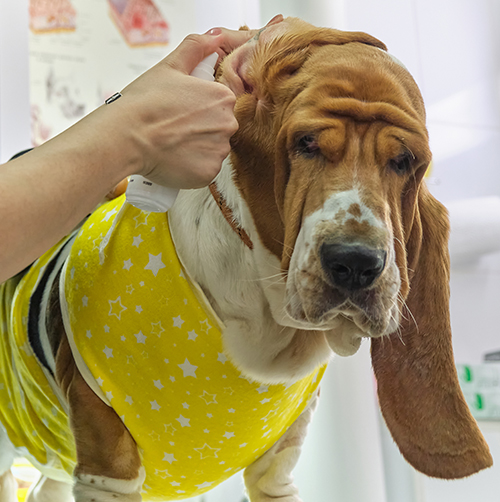 It’s almost here! Springtime. After a long and unusually cold winter, we all are anxiously awaiting the new season.
It’s almost here! Springtime. After a long and unusually cold winter, we all are anxiously awaiting the new season.
As the weather begins to warm up and the flowers start to bloom, it’s important to make sure your furry friends are ready for the change of season. Springtime brings with it a whole new set of health concerns for pets, including the risk of contracting diseases from ticks and mosquitoes. Luckily, there are steps you can take to protect your pets and ensure they stay happy and healthy throughout the season. From scheduling necessary vaccines to adjusting their exercise and diet routine, this blog will provide you with essential tips from the professionals on how to prepare your pets for springtime.
Essential Tips to Keep Your Pets Healthy and Happy in the Springtime
Springtime is a wonderful season to enjoy with your pets, but it’s important to be aware of the potential challenges that come with it. As a professional in the field, Dr. Whitworth has seen firsthand the impact that the changing weather can have on our furry friends. In this section, we will provide you with essential tips to keep your pets healthy and happy during the springtime.
- First and foremost, it is crucial to schedule regular check-ups with Dr. Whitworth at Whitworth Animal Clinic. This will ensure that your pets are up-to-date on all necessary vaccines and preventative treatments for fleas, ticks, and heartworm. These parasites become more active in the warmer weather and can pose serious health risks to your pets.
- With longer daylight hours and milder temperatures, your pets may have more energy to burn. Increase their outdoor playtime gradually to prevent injuries or exhaustion.
- Consider discussing any dietary changes with Dr. Whitworth to support their overall health during this season.
The Importance of Vaccinations and Regular Veterinary Check-ups
Ensuring that your pets are up to date on their vaccinations and schedule regular veterinary check-ups is of utmost importance during the springtime. With the increase in outdoor activities and interactions with other animals, the risk of exposure to contagious diseases rises as well. By staying current on vaccinations, you can protect your pets from diseases like rabies, parvovirus, and leptospirosis.
Regular veterinary check-ups are also crucial for detecting any underlying health issues before they become serious. Dr. Charles Whitworth can perform a thorough examination, check for any signs of allergies or respiratory problems, and provide appropriate treatments if necessary.
Creating a Safe and Comfortable Environment for Your Pets During Springtime
1. Secure your backyard: As you spend more time outside, ensure that your yard is escape-proof. Check your fences and gates for any holes or gaps that your pet could slip through. Consider installing a secure, locked gate if necessary.
2. Be cautious of toxic plants: Spring brings beautiful blooms, but some plants can be toxic to pets if ingested. Research which plants are safe and which should be avoided. Keep an eye on your pets while they are exploring the garden to prevent them from nibbling on harmful foliage.
3. Protect against parasites: With the return of warmer weather, parasites like fleas, ticks, and mosquitoes become more active. Consult Dr. Whitworth and implement a preventative treatment plan to keep your pets protected.
Handling Seasonal Allergies
As spring arrives, so does the rise in seasonal allergies and pest problems for our furry friends. It’s important to be proactive in protecting your pets from these common issues. Many pets suffer from allergies caused by pollen, grass, or other environmental factors. If you notice your pet itching excessively, sneezing, or having skin irritations, consult Dr. Whitworth for a proper diagnosis and treatment plan.
When springtime comes, there is the need to be proactive in protecting our pets from seasonal allergies and pest problems. By recognizing the signs of allergies and consulting with Dr. Whitworth, we can diagnose and treat our pets effectively. Additionally, by taking preventative measures such as using flea and tick medications and vaccinating against mosquitoes, we can minimize the risk of discomfort and diseases caused by these parasites







Leave A Comment